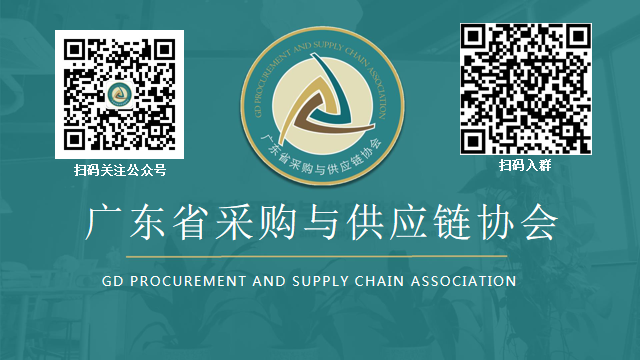公关媒体服务
发布时间:2020-07-20 点击数:799
By Emma Cosgrove 2020 07-13
据首席供应链官马克·恩格尔(Marc Engel)说,冠状病毒大流行给联合利华带来了一系列的压力测试。
从生产到分销,国家封锁已经影响到公司从生产到分销的每个层面的全球供应链。工厂的缺勤和送货司机的短缺增加了压力。恩格尔周三在路透"欧洲转型"虚拟会议上表示,需求从商业客户向消费品转变的因素,以及看到未来将会发生什么因素,成为目前决策的次要因素。
"敏捷性确实胜过预测,"马克·恩格尔说。在一天结束的时候,我们在敏捷性上花费的每一美元,在预测或情景规划上花费的每一美元,其回报率可能都提高了 10 倍。
如何使您的供应链具有高度响应性
这一理论的第一个考验是在大流行的早期,当时对联合利华更基本产品(如清洁用品)的需求在某些情况下增长了600%。为了交付产品,公司转换了生产线,并将生产的总 SKU 数量减少了 65%。
马克·恩格尔说:"为了确保我们保持自己的运转,需要一个更简单的产品组合。
强调预测的灵活性意味着缩短规划周期 – 公司将规划周期从 13 周缩短到 4 周。每周计划会议变成了每日会议。由于消费者支出和生产能力偏离历史趋势,现有的需求基线甚至人工智能项目不再适用。
近几个月来,马克·恩格尔对敏捷性和弹性之间有一个坚定的区分。
马克·恩格尔说:"弹性更多的是围绕采购。"您的产品是从哪里得到的?您从多少市场获得?但是敏捷性真正就是你有能力应对不确定性。公司将采用这种技能来决定何时收回搁置的 SKU。
马克·恩格尔描述的敏捷性是由已经在进行中的数字化转型工作——由于大流行而加速的工作——而成为可能。该公司正努力通过 200 亿台设备(包括一些支持物联网的设备)连接其供应链,实现流程自动化,并利用所收集的数据。
马克·恩格尔说:"你知道,通过[COVID-19],数字化转型已经加速了,你确实需要一个端到端的数字转型战略来完成这一切——同样在气候方面。
马克·恩格尔表示,联合利华供应链数字工具和敏捷性的观点将使公司能够保持可持续发展计划走上正轨。在此次活动中,其他几位供应链专业人员也表达了这种看法,他们更新了供应商治理系统,以在可持续性标准上监控生产能力。
联合利华承诺到2030年,将自身运营业务的排放量从2015年的基准和产品中的净零水平从2010年的基准中减少50%。承诺仍在进行中,事实上,该公司上月也发布了进一步的细节,介绍如何让供应商实现这些目标。但是,该公司并不总是那么确定可持续发展的雄心壮志能否度过这一大流行。
"我们进行了真正的深入讨论, 说我们是暂停还是加速?马克·恩格尔说。"我们说,这是一个加速的时候。
全球经济关闭前几个月总排放量的下降提醒恩格尔和公司,有可能对气候变化产生很大影响。
马克·恩格尔说:"虽然世界正在处COVID-19大流行病的破坏性影响,而且它正在处理严重的不平等问题,但我们不能让自己忘记,气候危机仍然是对我们所有人的威胁。
原文:
The coronavirus pandemic has presented Unilever with a series of stress tests, according to Chief Supply Chain Officer Marc Engel.
National lockdowns have affected the company's global supply chain at every level from production to distribution. Absenteeism in factories and a shortage of delivery drivers added to the stress. Factor in demand swinging away from commercial customers to consumer products and the ability to see what was coming next became secondary to making decisions in the moment, Engel told the Reuters Transform Europe virtual conference Wednesday.
"Agility does trump forecast[ing]," the CSCO said. "At the end of the day, every dollar we spent on agility has probably got a 10x return on every dollar spent on forecasting or scenario planning."
How to Make Your Supply Chain Highly Responsive
The first test of this theory came early in the pandemic when demand for Unilever's more essential products, such as cleaning supplies, shot up 600% in some cases. To deliver, the company converted production lines and reduced the number of total SKUs it produced by 65%.
"A much simpler portfolio was required in order to make sure that we keep ourselves running," Engel said.
An emphasis on agility over forecasting meant shortening planning cycles — the company reduced its planning horizon from 13 weeks to four. The weekly planning meeting became a daily meeting. Existing demand baselines and even artificial intelligence programs no longer applied as consumer spending and production capacity strayed farther from historical trends.
The CSCO drew a firm distinction between agility and resilience in recent months.
"Resilience is more around sourcing," Engel said. "Where do you get your products from? How many markets do you source from? But agility is really about how well are you equipped to respond to uncertainties." And it's that skill that the company will use to decide when to bring back the SKUs it put on hold.
The agility Engel described was made possible by digital transformation work already in-progress — work that accelerated as a result of the pandemic. The company is working toward connecting it's supply chain via 20 billion devices (including some that are internet of things-enabled), automating processes and leveraging the data collected.
"You know the digital transformation has been accelerated no-end through [COVID-19] and you do need an end-to-end digital transformation strategy to do all of this — also on the climate side," Engel said.
The same digital tools and agility that are keeping Unilever's supply chain going through coronavirus lockdowns will allow the company to keep its sustainability initiatives on track, the CSCO said. This was a sentiment echoed by several other supply chain professionals at the event who updated supplier governance systems to monitor production capability on top of human rights and sustainability standards.
Unilever has committed to reducing emissions from its own operations to net-zero by 2030 from a 2015 baseline and from its products, taking into account their entire life cycle, by 50% by 2030 from a 2010 baseline. The commitments are still in place, in fact the company released further detail on how it will bring suppliers in on these goals as well last month. But, the company wasn't always so sure sustainability ambitions could hold through the pandemic.
"We had a real deep discussion saying do we pause or do we accelerate?" Engel said. "And we said this is a time to accelerate."
The decrease in overall emissions during the early months of global economic shutdowns reminded Engel and the company that it is possible to affect climate change in a big way.
"While the world's dealing with the devastating effects of the COVID-19 pandemic, and it's grappling with serious issues of inequality, we cannot let ourselves forget that the climate crisis is still a threat to all of us," Engel said.
